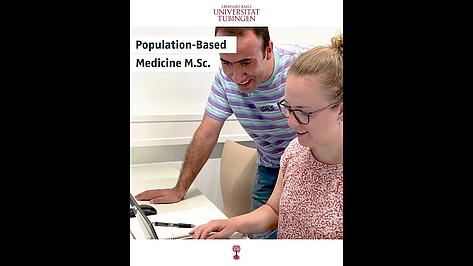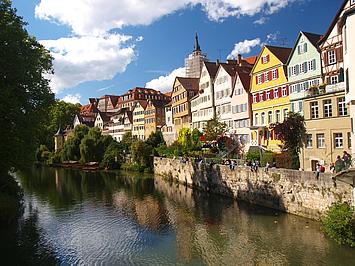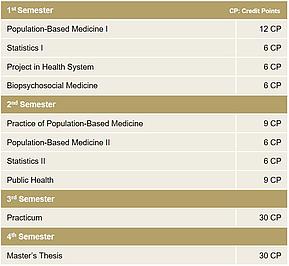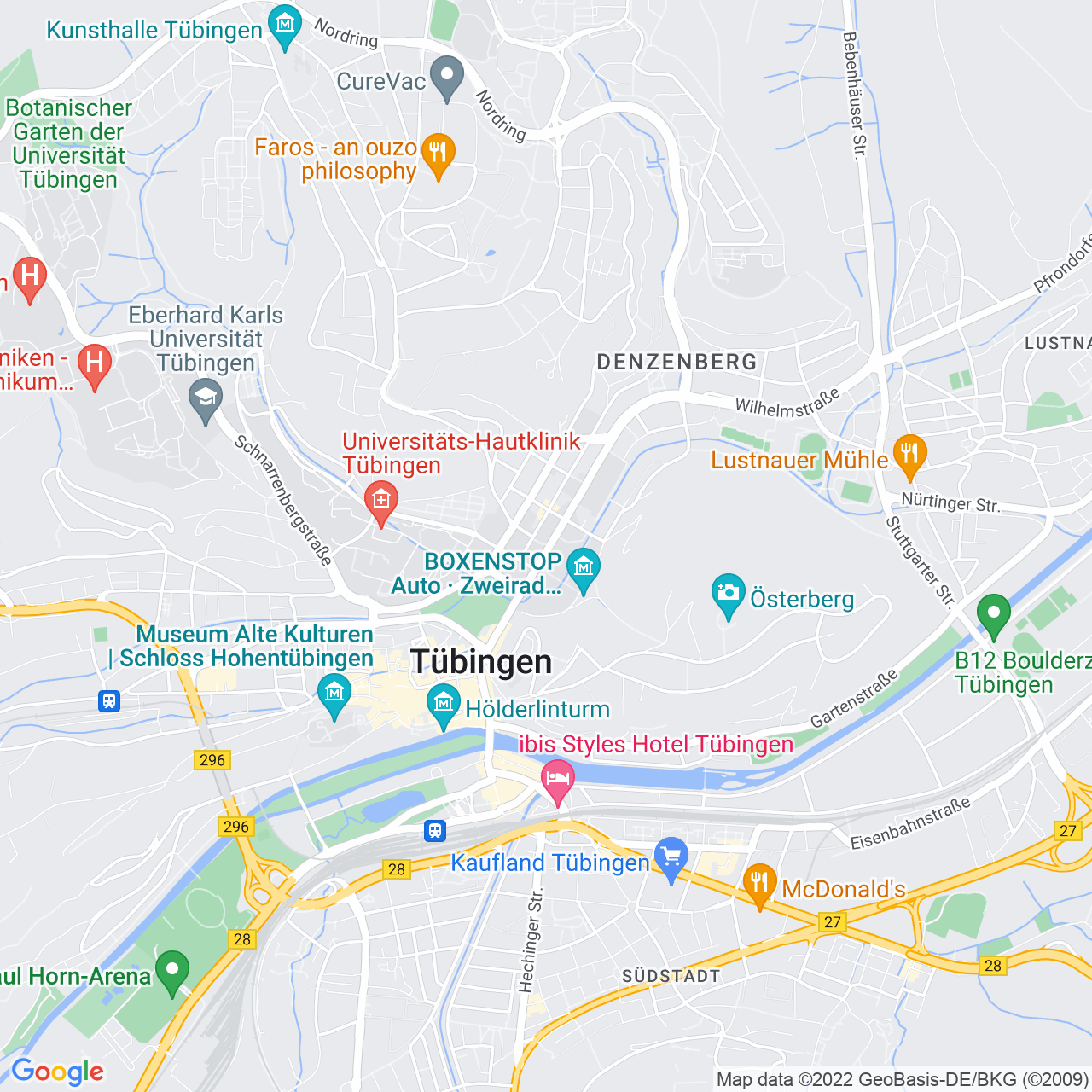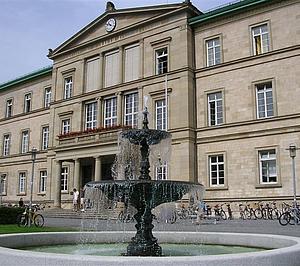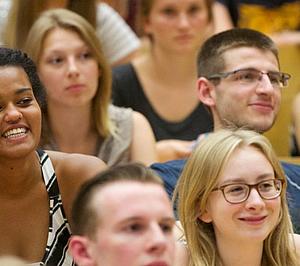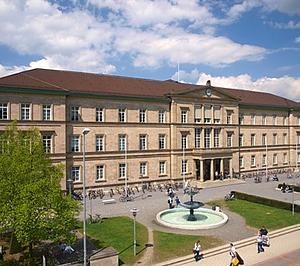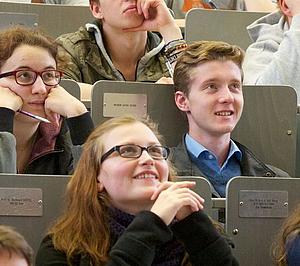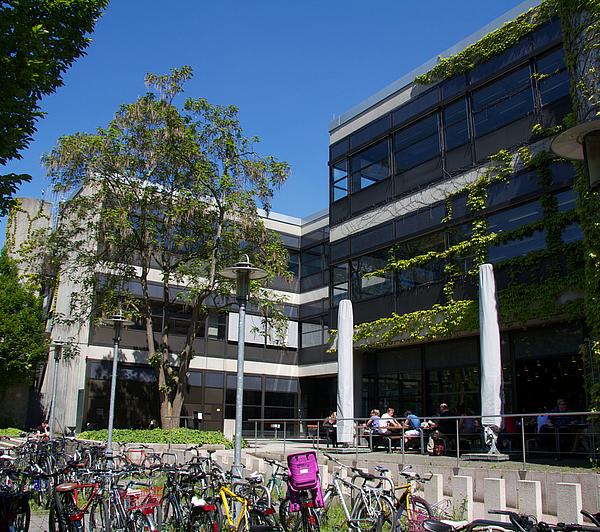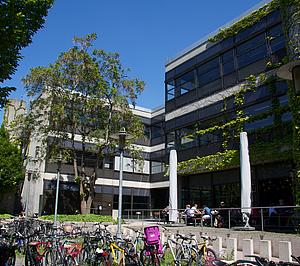Bringing together expertise from behavioral, health and social sciences
Population-Based Medicine (M.Sc.) is a Master’s Program offered by the Faculty of Medicine in Tübingen, focusing on medical conditions, health behavior, and psychosocial factors. The overarching goal of this program is to bring together expertise from behavioral, health and social sciences; to provide interprofessional and interdisciplinary perspectives, particularly at the intersections of the fields; and for our students to gain hands-on international experience in population health-related topics.
Profile of the program
- Degree: Master of Science (M.Sc.)
- Application deadline: 15th April
- Start of studies/courses: winter semester
- Regular duration of study: 4 semesters (2 years)
- Total credits: 120 ECTS
- Language of instruction: English
- Type of study: Full-time study
- Number of study places: 20
Field of Study
Population health sciences is the study of the conditions that shape distributions of health within and across populations, and of the mechanisms through which these conditions manifest in the health of individuals. Population health takes a broad, interdisciplinary approach and includes health outcomes as well as patterns of health determinants. Population-based medicine can be defined as population health science with a focus on medical conditions and patient populations, and refers to all aspects of community medical care, from primary prevention to tertiary care. Population-based medicine often works with big datasets and epidemiological and statistical methods to identify patterns in the diseases and health of large populations. Population-based medicine can be considered as the basic science of public health, much as biomedical research is the basic science of clinical medicine. You can find more information on the field of study and our research on the department website.
Population-Based Medicine in Tübingen
The Master’s Program Population-Based Medicine in Tübingen offers a challenging program at a competitive international level for which high individual effort and performance are required. We strive to prepare students to respond to both challenges and opportunities to improve health within and across populations. Our goal is to train future population health experts with outstanding methodological knowledge and interdisciplinary expertise to address the full range of factors influencing health and disease. This includes the designing, implementation and evaluation of intervention programs for health problems (e.g., lifestyle modification strategies and stress management), the development of prevention strategies at the population level (e.g., for diabetes, cardiovascular conditions, and cancer), as well as the development of policy recommendations, health education and outreach at community and population level (e.g., digital health technologies).
Four main features of our program are crucial for the achievement of the aforementioned goals:
- Interdisciplinary & interprofessional. We follow a comprehensive approach including behavioral, biological, social and mental factors of health and illness. You will study, learn and work in interprofessional groups.
- Research-oriented. We strongly focus on empirical and synthesis methods in population health research.
- Mentorship. You will receive support and advice throughout the program by your individual mentor.
- Practicum. In the third semester you will obtain practical experience and apply your professional competencies in population-based medicine.
Career
A Master’s Degree in Population-Based Medicine opens a variety of paths to pursue. You will have acquired skills and techniques in a wide range of health-related areas, as well as collaborative team working, communication and research methodology. Career options could include working at:
- Local planning and government offices (e.g., Public Health Officer)
- Hospitals (e.g., Health Promotion Specialist, Communication Officer)
- Consulting companies (e.g., Health Policy Analyst)
- Health insurance companies (e.g., Health Data Scientist)
- National and international (health) organizations (e.g., Program Manager)
- Pharmaceutical companies (e.g, Population Health Scientist)
- Universities and research institutes (e.g., Research Coordinator)
- Non-governmental organizations (e.g., Strategic Partnership Analyst).
- Various companies (e.g., Occupational Health Manager)
The program also provides a solid foundation for PhD studies.
Curriculum
The Master’s Program Population-Based Medicine lasts two years (four semesters) and encompasses a total of 120 ECTS. Full-time courses will be held during the first and second semester. In the third semester you will apply your theoretical knowledge from the classroom in a real-world setting by completing a 14-week full-time practicum in a field of your choice (e.g., local planning and government offices, hospitals, NGOs).
This practicum will allow you to further customize your training, as you can select a site or focus of special interest to you. A mentor will help you develop a practicum project (e.g., quantitative or qualitative data analysis or another project) that you will work on during and report on after your practicum. You can complete the practicum in Germany or abroad. The practicum experience may also inform your choice of topic for your Master’s Thesis in the fourth and final semester.
1st Semester: Full-time courses (Modules PBM-1 to 4)
2nd Semester: Full-time courses (Modules PBM-5 to 8)
3rd Semester: Full-time practicum (in Germany or abroad, Module PBM-9)
4th Semester: Master's Thesis (Module PBM-10)
List of modules
For more information on each module visit this website.
Application and requirements
20 study places are available each year and will be awarded according to the applicant’s qualifications as well as their performance in a selection interview. This interview will focus on professional knowledge, aptitude, and motivation, as well as communication and analytical skills. English language skills and competencies in the areas of methods and statistics will also be part of the interview.
Application requirements are:
- A Bachelor's Degree of at least six semesters in health sciences or an equivalent degree in a related field of study with a grade of 2.5 or better (German grading system)
- English language skills at B2 level CEFR (Common European Framework of Reference for Languages)
Subjects that could be considered as comparable to Health Sciences might be: Public Health, Epidemiology, Medicine, Dentistry, Nursing, Midwifery, Nutrition, Pharmacy, Health Economics, Health Policy, Biostatistics, Psychology, Sports, Sociology, Cognitive Sciences. A final decision about the equivalency of the subject can only be made based on your complete application. Make sure to include a Transcript of Records or any other documentation concerning the content of your Bachelor's Degree.
The application deadline is 15th April for the winter semester
Studying at Univerity of Tübingen
Innovative, interdisciplinary, international: These three words summarize what makes the University of Tübingen special. Excellent research and teaching are Tübingen’s answer to the challenges of the future in a globalized world. We maintain exchanges with partners around the globe. Networks and cooperation across faculty and subject boundaries are the pillars of our successful strategy.
Tübingen’s success in the German Government’s Excellence Programs since 2012 have placed it among the most outstanding universities in Germany. The University is also well-placed in international education rankings. Some 28160 students from Germany and around the world enrolled here in our more than 200 study programs, including numerous international programs taught entirely in English.
Eco-friendly Tübingen is a great place to study – both because of the excellent conditions for students and researchers, and the unique charm of the town with its many cafés, restaurants, shops, and outstanding cultural activities.

